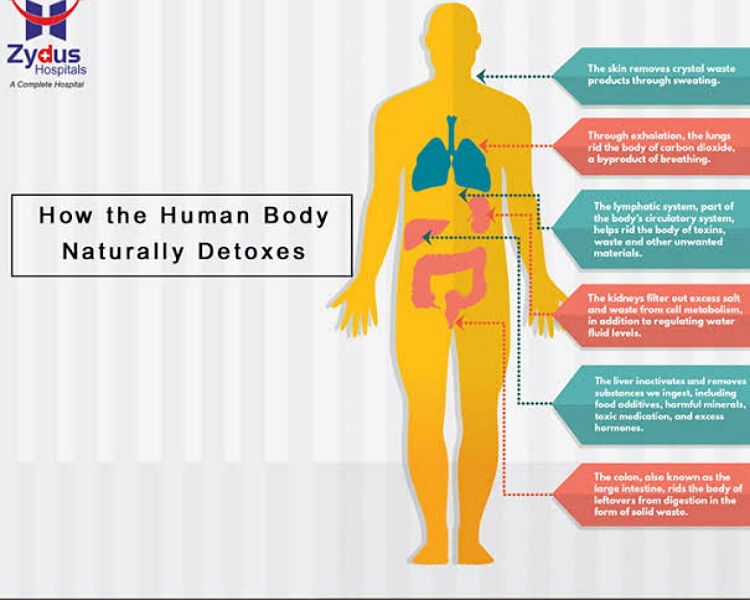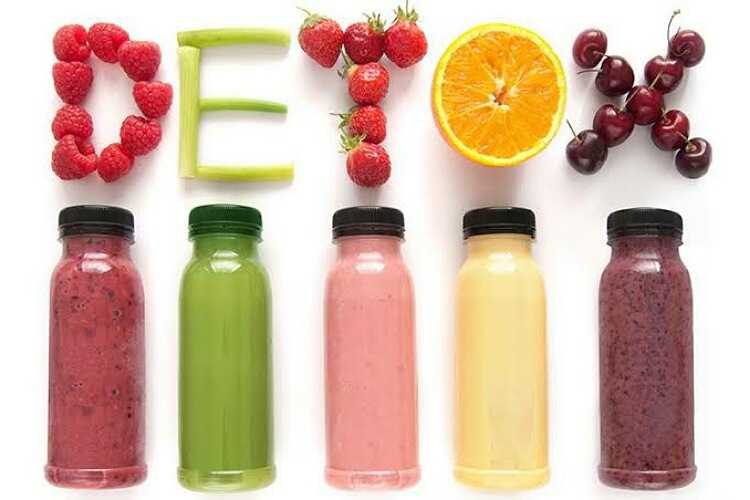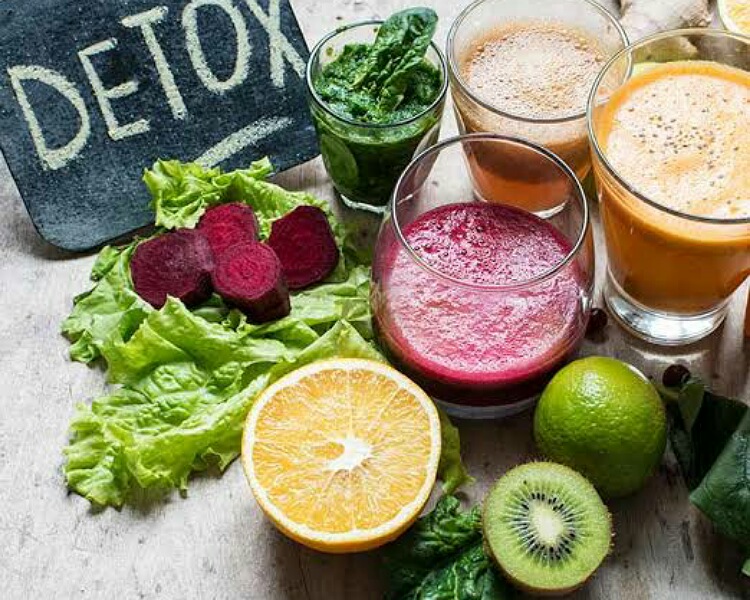The term detoxification is everywhere on the internet. There are tall claims that detoxifying the body helps and that certain foods assist in the process. But what does the word imply? Does the body need it artificially? Does it help? And can certain foods really detoxify?
Detoxification process
Every human body has a detoxification process in place. The term means removal of toxins and other harmful substances from the body. These toxins might have been ingested or might have been produced as by products during metabolism. Whatever the means of production, human body is equipped with organs to remove these toxins. And the most active organs in this are the liver and the kidneys. The gut, skin and lungs also play their roles in it.

Dietitian Melissa Azzaro explains:
“These chemical reactions that help the body ‘detoxify’ are heavily nutrient-dependent and rely on nutrients including B2, B3, B6, B12, and folate as cofactors,”
As an extension, this term is now often used in the wellness field. People claim that the process can be done artificially and is useful for health reasons.
Does your body need artificial detoxifying process
When we have a healthy excretory system in place, why does one need the artificial means of detoxifying the body system? Advocates of the process claim that modern life especially in the urban areas are full of pollutants. We eat and breathe pollutants. All these enter the body and overwhelm our system.

The body system though healthy cannot cope with the load and hence people require artificial means over and above the body’s cleansing system to remove the toxins. All these are claims and there is no scientific backing for these claims.
Also, whether the artificial detoxification helps or not is uncertain. But people claim that certain foods can cleanse the body and periodic cleansing in this way promotes health and keeps diseases at bay. Again on this aspect there are no reliable studies to support the claims.
Can foods detoxify?
There are certain commercial detox diets available. But these lack scientific support. More over, they are highly restrictive and can cause other nutrient deficiencies. They are hard and stressful to follow and might lead to deprivation and subsequent overeating.
Additionally, these detox dieters can end up overloading themselves with supplements, diuretics, water or laxatives.

But some food ingredients such as malic acid, citric acid, coriander, succinic acid, citrus pectin, chlorella can detoxify. Therefore foods containing them can help in the process. There are studies showing the effectiveness of these substances in detoxification.
Selenium supplementation helps remove mercury from body, as per studies. Some tropical fruits also assist in overcoming mercury poisoning, studies have revealed.
Melissa adds that cruciferous vegetables can help in the process in the liver. And green tea and turmeric support the body’s detoxifying system.
Also, read Lemon detox diet: Everything you need to know about this unscientific food fad!
Therefore, limit intake of ultra processed foods and contaminated seafoods. Avoid commercial detox diets. Eat real and natural. Melissa concludes:
“The bottom line is that eating a nutrient-dense diet high in antioxidant-rich fruits, vegetables, and other foods like green tea and turmeric may help support our liver to do its job more efficiently, help your body bind certain metals, or perform other processes that help our bodies rid themselves of toxins,”
